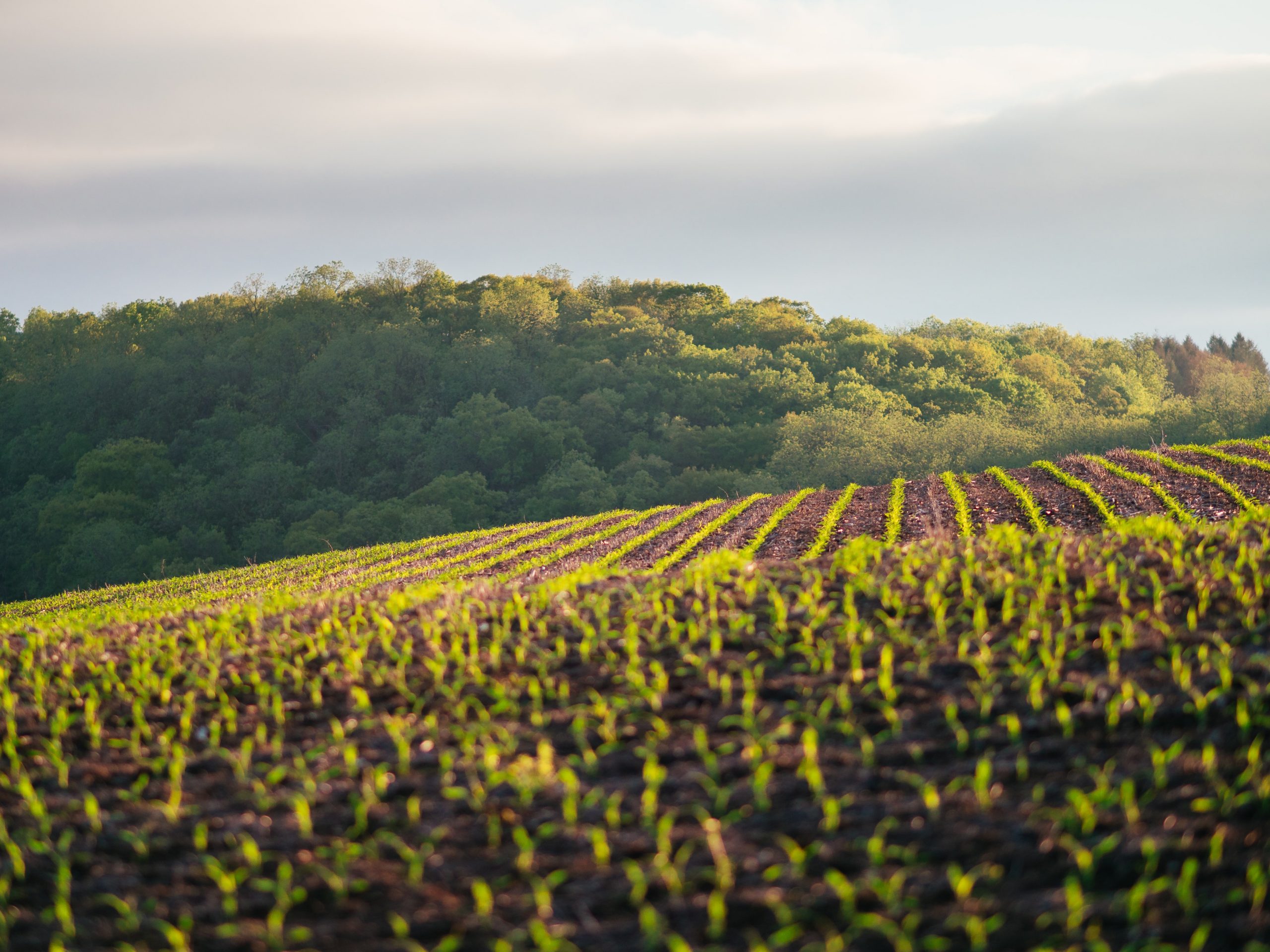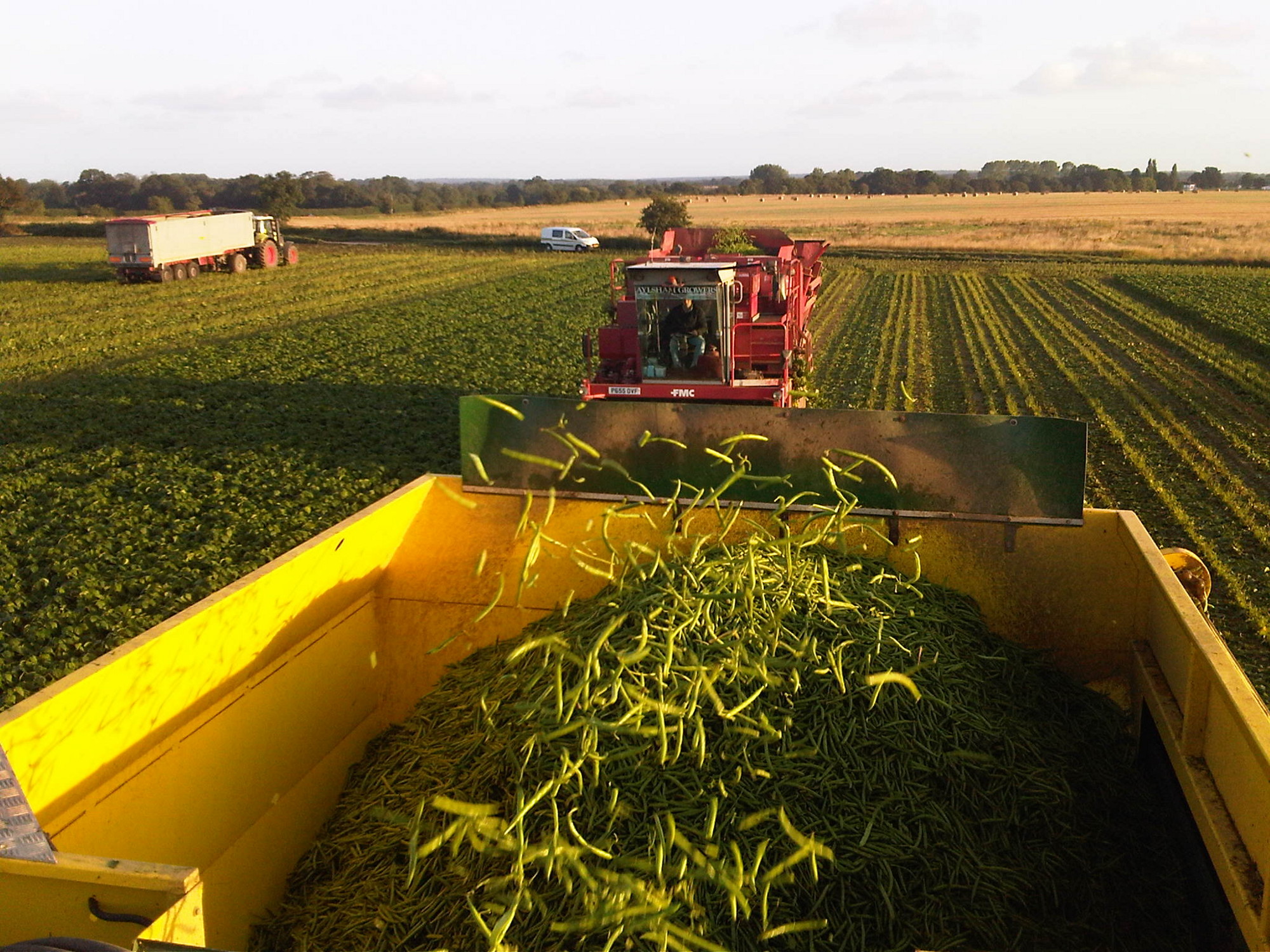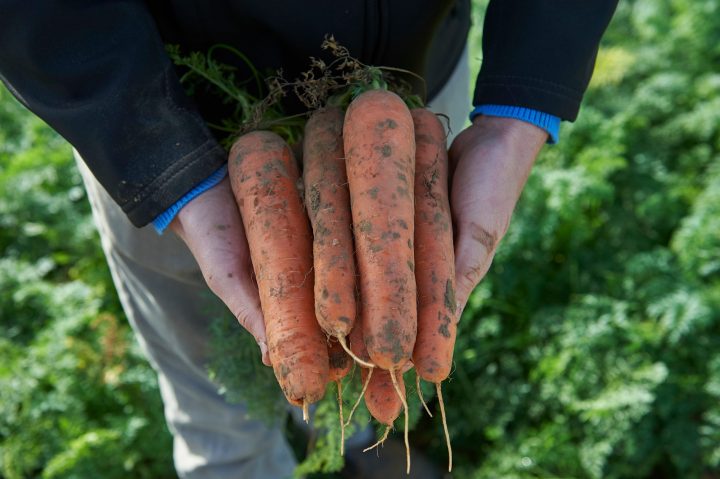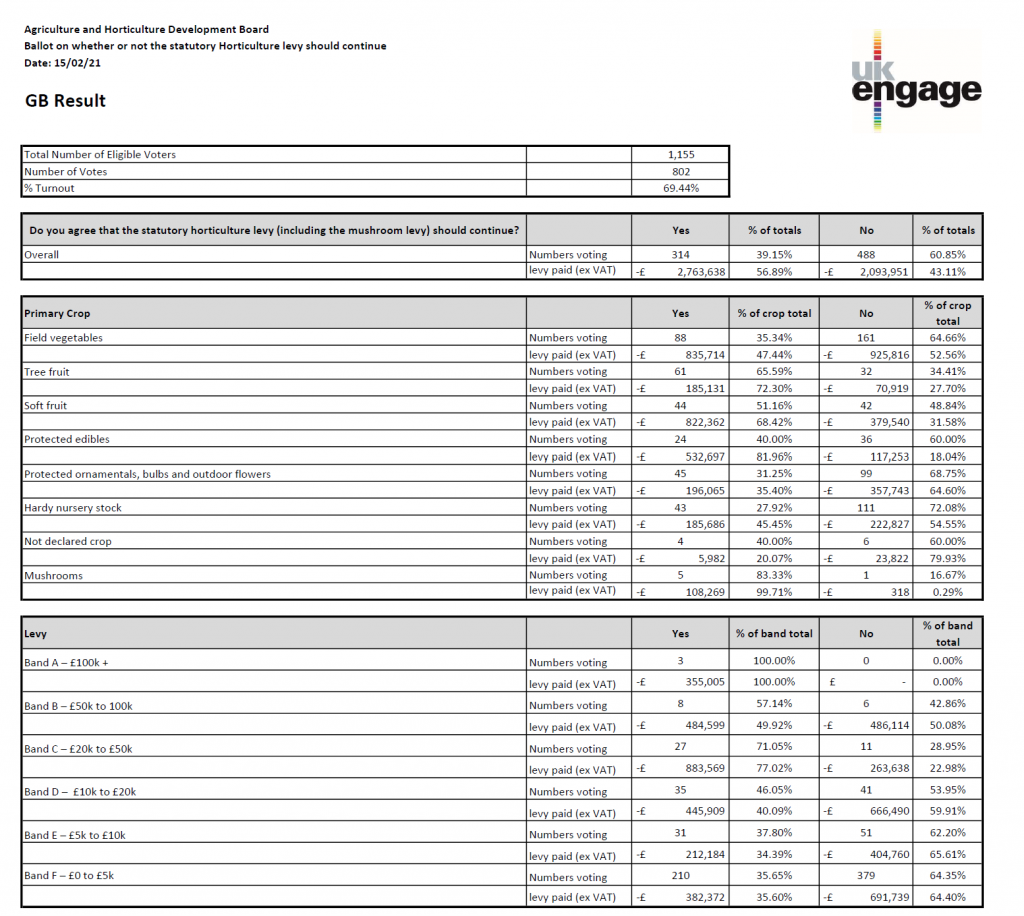
The health benefits of eating veg has certainly struck a chord with consumers. The British Onions Producers Association and UK Brassica Growers Association have seen sales of onions and brassicas soar during lockdown. Retailers are reporting increases of 25% in year on year sales of onions, and in the early stages of lockdown sales were up as much as 70% on previous years.
Commenting on the growth in onion consumption, Tim Elcome, Chairman of the British Onions Producers Association said, ‘with many more people inevitably cooking at home the humble onion is proving ever popular’. But Increased demand coupled with an unpredictable growing season means that stocks of UYK onions are somewhat lower than we would normally expect. This may result in a tightening of UK stocks and an increased import window next spring and early summer.
Brassica growers have experienced a similar situation with higher than normal sales across the full range of brassicas as consumers look for new things to cook at home. ‘This has been a great opportunity for people to re-discover the benefits of seasonal home grown produce’ explained Richard Mowbray, Chairman of the UK Brassica Growers Association.
Richard went on to point out that the spell of very cold weather over the Christmas period has affected some yields and supplies have been affected. Imports from Spain have also been affected due to heavy snow caused by Storm Filomena. As a result of this unprecedented demand, UK brassica supplies will be tight for the remainder of the winter period with some varieties finishing earlier than normal and sales outstripping supply.
Stewart Aspinall Chairman of the Leek Growers Association has seen a similar patter emerge with leek consumption. ‘Consumers spending more time eating at home and cooking from scratch has created greater demand for British leeks, with many trying the vegetable for the first time and enjoying its taste and versatility’.
But as with onions and brassicas, this unexpected growth in demand, coupled with a harsh Spring in 2020, means that there is likely to be a shortfall by April, with supply ending earlier than normal and retailers will have to look at importing more expensive continental leeks to fill the void.
The British Carrot Growers Association Chairman, Rodger Hobson comments that the “carrot industry is delighted with the increase in demand from UK consumers, spending more time at home preparing food has led the UK to rekindle their love for the humble British carrot”. Following the 2020 growing year, which was challenging, Rodger warns “that there might be some imported carrots on the shelves to ensure continuity of supply. This will enable everyone to enjoy carrots in all their meal occasions until the new UK crops comes on stream”.
Jack Ward, British Growers said ‘It’s great to see this surge in demand. We know as a nation we don’t have enough veg in our diet and while part of the success is attributable to lockdown, there is a growing interest in healthy eating and seasonal produce. The UK had a proud tradition of producing seasonal veg throughout the year and the increased consumption has brought a welcome counter to the problems of coping with the Covid pandemic.’

AHDB ballot
Quick reminder, the AHDB ballot closes on 10 February 2021 and we are expecting the outcome to be announced on 17 February 2021.
Covid testing for food workers
Defra would like to invite growers with more than 50 employees to register for the provision of government-funded lateral flow technology (LFT/LFD) to test asymptomatic workers. These free test kits will be available until 31 March 2021.
The offer
- a limited period of free LFDs shipped to one location;
- a clinically approved protocol (Standard Operating Procedures);
- a Guidebook to describe how to set up and run a safe and effective testing site;
- on-demand training for the operatives that will process tests & run the site; and
- a GDPR-compliant digital solution to report results to Public Health England.
Setting up an ATS site may not be viable for smaller businesses or premises, and therefore this model is less suitable for mobile employees working in the field away from a fixed location and so Government is developing other options. In the meantime, the suggestion is for businesses with fewer than 50 employees to contact their local authority to explore the possibility of using the growing number community testing facilities.
Next steps
Those that want to further engage, please register your interest with P&P Sector Testing Queries P-and-PSector@dhsc.gov.uk including “Register interest for National Worker Programme” in the subject line and including the following information in the email body:
Institution name
Email for main point of contact
Industry sector e.g. Food manufacturing
Company registration number
Size of company (# employees) e.g. 50-250, >250
The offer is currently for England only but conversations in the Devolved Administrations are ongoing. Please flag if your business includes locations in Wales, Scotland, or Northern Ireland.
The Farming Equipment & Technology Fund
Defra is planning to launch the Farming and Equipment Technology Fund (FETF) in England in the Autumn of 2021. This scheme will be part of the Farming Investment Fund and provide grants to farmers and growers (including contractors to these sectors).
The Fund will provide targeted support to invest in equipment, technology, and infrastructure to improve productivity in a sustainable way. The plan is to have a maximum grant of £25,000 with an intervention rate of 40%, which means items costing up to £62,500 could be eligible for the list.
Defra is preparing a list of items for inclusion in the new Fund and is asking industry to identify new items to be included in the fund.
The new equipment will need to contribute to one or more of these outcomes:
- Improve agricultural productivity
- Encourage more sustainable pesticide usage
- Improve air and water quality
- Reduce GHG emissions in line with Net Zero targets
- Reduce unsustainable use of abstracted water
- Encourage sustainable management of woodlands
Defra is seeking suggestions for items to be considered for inclusion into the new FETF and wants feedback by 12 February (although I sense this could be stretched a little).
You can either channel your ideas through us or direct to the following contacts at Defra. pamela.whaley@defra.gov.uk and Jonathan.King@rpa.gov.uk
Veg sales continue to do well
A combination of home cooking during lockdown and the vegan revolution is helping boost sales of greens. That’s according to Tesco, which says that veg such as cabbage, spinach and even sprouts have become popular as home-based Brits, with more time on their hands, return to scratch cooking. That effect has been amplified by the growing popularity of plant-based events such as Meat Free Mondays and Veganuary. The trend is so pronounced that Tesco said it is now working with its UK suppliers to grow more to meet the demand. The highest increase is being seen with leeks and cabbage as well as broccoli and sprouts. Since the first lockdown in March 2020, Tesco reported leeks sales up 30%, cabbages 25%, broccoli 20%, and sprouts, kale and spinach all around 10%.

Every few years, Red Tractor reviews its farm standards to ensure they evolve in a way that addresses changes in legislation, best practice and reflects the concerns and priorities of UK consumers. A comprehensive review is now open for consultation, running until the 5th of March 2021. It is open to all farms, customers, licensees and industry stakeholders. Preserving the public’s trust in UK agriculture and the Red Tractor logo has never been more important or topical. We strive to achieve a balance that protects and promotes Red Tractor farms, provides customers and consumers with confidence, and addresses key industry challenges.
Proposals have been developed following industry best practice: Committee | Consultation | Consensus. This is the consultation stage and every response will be reviewed before a consensus proposal is drawn up and published, ahead of Version 5 of the Red Tractor Standards being implemented on 1st November 2021. We have already consulted broadly at the committee stage to create these proposals and the public consultation is another vital component of the process. This will help ensure we have a final text that is ambitious but remains approachable and accessible for small, family farms and we want feedback from all relevant stakeholders.
You can access the Red Tractor 2021 Review Hub here.
I would like to strongly encourage you to get involved and have your say; both in response to the consultation and also the briefer Pulse Survey which allows individuals to provide quick, general feedback on the Red Tractor scheme.
If you would like some further information on the proposals, you will find a number of resources on the Red Tractor 2021 Review Hub. You are welcome to contact me if you have questions or would like to organise an appointment to run through the content in more detail.


MEDIA RELEASE
From: David Camp, Chief Executive, Association of Labour Providers
Release Date: 13 January 2021
Helping the food supply chain to find critical workers
The newly launched, Association of Labour Providers ‘Extra Workers Needed Portal’ supports the food supply chain to address critical worker shortages. A short demonstration video may be viewed here.
Despite rising unemployment figures, ALP’s recent labour supply survey identified that 92% of food growers and manufacturers believe there will be insufficient critical workers to meet the food supply chain’s needs in 2021.
Labour challenges are currently further exacerbated by higher Covid related absence rates.
The ‘Extra Workers Needed Portal’ is one way that the ALP is helping the food supply chain to meet this challenge. It’s a straightforward concept – any food supply chain business that needs extra workers can post their requirements for free in the portal and be contacted by UK wide and local GLAA licensed ALP labour providers that can supply them.
David Camp, ALP Chief Executive says, ‘This portal is a quick and easy way for businesses to reach hundreds of licensed labour providers across the UK, maximising their chances of sourcing the right number and quality of workers at the right time. From a farm needing a few workers, to a food producer or distribution warehouse needing hundreds, the portal is freely available for all businesses to use.’
Businesses can register to use the portal here.
About ALP
ALP is the specialist trade association promoting responsible recruitment and good practice for organisations that source and supply the workforce to the food processing, agricultural and wider consumer goods supply chain.
Contact: David Camp ¦ Chief Executive ¦ Association of Labour Providers ¦ T 01276 509306 ¦ E info@labourproviders.org.uk ¦ W www.labourproviders.org.uk

AHDB Developments
Apologies for another update with AHDB in the title but January 2021 will a decisive month for the industry and AHDB Horticulture and it is important that people understand what’s happening, what the timescales are and how to influence the outcome.
AHDB Horticulture Ballot
The ballot on the future of the compulsory levy in horticulture will open on 13th January 2021 and end on 10th February 2021. The ballot will ask a simple yes/no question … Should the statutory horticulture levy continue?
Any person or business that has paid the horticulture levy within the previous 12-month period from the end of the ballot (10th February 2021) is eligible to vote. There is one vote per business, regardless of size or turnover and each business must decide who is going to cast that vote (e.g. if it is a partnership, only one person can vote). If you haven’t paid a levy in the past 12 months there is an option to pay a ‘nominal amount’ subject to agreeing a payment plan with AHDB for any outstanding levy invoice(s).
The outcome of the ballot will go to Defra Ministers for a final decision. Ministers are not bound by the result and the decision on whether or not to continue a levy rests with Ministers.
Further information on the ballot
Horticulture & Potatoes Future Statutory Levy Working Group
At the weekend the Horticulture Future Statutory Levy Working Group which comprises the following list of growers issued the following statement:
• Philip Pearson, APS Produce Ltd (Protected Edibles)
• Marion Regan, Hugh Lowe Farms (Soft fruit)
• Martin Emmett, Walberton Nursery LLP, Binsted Nursery LLP, Fleurie Nursery Limited (Ornamentals)
• Sophie Bambridge, B & C Farming Ltd (Potatoes)
• James Harrison, EG Harrison & Co. (Potatoes)
• Tom Hulme, AC Hulme & Sons (Tree Fruit)
• Martin Evans, Fresh Growers Ltd (Field Vegetables)
• John Shropshire, Cambs Farms Growers Ltd (Field Vegetables)
• Derek Wilkinson, Sandfields Farm Ltd (Field Vegetables)
• Philip Morley, British Tomato Growers’ Association / APS Produce Ltd (Protected Edibles
The Horticulture & Potatoes Future Statutory Levy Working Group has been established voluntarily by businesses from within the UK Horticulture and Potato sectors to work together for the benefit of all levy paying businesses. We believe in the fairness and value of a statutory levy and that our industry should work collaboratively to achieve market-led innovation, near market applied R&D, increased productivity and a world class sustainable industry. The Group presents considered alternatives and draws inspiration from the successful levy models established in Australia and New Zealand.
The Group is developing a workable alternative to the current model, aiming to deliver better value for money and organisational and financial transparency for levy paying businesses and would welcome engagement with and contributions to this process from other levy payers. We have been in conversation with senior members of AHDB, including Chairman Nicholas Saphir, and commend the changes he is trying to make, especially the introduction of an automatic 5 yearly ballot. It is our belief that the proposed changes need to go further and faster.
Levy payers must ‘take back control’ of their investment funds and provide the strategic leadership within a lean and agile decision-making framework. The levy organisation should work to support this.
This will be achieved through:
• Root and branch reform of the existing levy organisation for Horticulture and Potatoes
• All levies raised, budgets and costs should be transparent to levy payers, regularly scrutinised and subject to Panel and Sector Board approval
• Overhaul of the governance of the existing levy organisation which should include a review of the Radcliffe Report and the previous constitutions of HDC and a commitment to a Sector Board and Panels for Horticulture
• More focus on levy funded near market R&D, supported by leveraged funding for strategic and fundamental science
• R&D reports online should be more easily accessible to all levy payers
• Market development should be nuanced after Panel consultation and only implemented for those sectors where it is required
• Co-funding mechanisms must be introduced and encouraged to secure additional funding from the whole supply chain, government, and research bodies. This will require entrepreneurism to
leverage these funding sources to complement and magnify levy payers’ funds
Aspects which will require a change in the Statutory Instrument:
• Levy is grower ‘investment’ not public money
• The levy collection and deduction system should reflect modern practices
• Levy paying members should nominate or elect their “Board” and “Panel” representatives ensuring accountability, budget control and sound strategy. They should not be appointed
• Levy payments should receive R&D tax relief / credits in line with private investment. The outcome of the changes being proposed will be a grower-led levy body serving levy payers through
proper governance and transparency. This will deliver a world leading, investor funded service which returns significant and measurable benefits to levy paying investors in a highly challenging and fast evolving primary food and plant production landscape.
The AHDB Strategy
And finally, … the AHDB Strategy is out for consultation. Here is the link to the online response option. The closing date is 31st January 2021.

Seasonal labour
The Government has announced that the Seasonal Workers Permit Scheme will be expanded to 30,000 permits for the 2021 season. These permits will be in addition to those granted settled and pre-settled status.
The scheme will be open to workers from anywhere in the world and there will be no distinction between EU residents and residents outside the EU. the decision about where to recruit workers from will be down to the scheme operators.
For 2021, two new scheme operators will be appointed in addition to Pro-Force and Concordia who operated the scheme in 2020. The appointment of the two new operators should be complete by April and the industry has emphasised these new operators need to be in place as soon as possible to ensure the industry has enough workers at the start of the season.
Recruitment of domestic workers
The Government will also work with industry to build on this year’s Pick for Britain campaign and actively promote the recruitment and retention of domestic seasonal workers in 2021.
Review into automation
Alongside the Seasonal Workers Pilot, Defra will lead a review into automation in horticulture, to begin in early 2021. The review will report on ways to increase automation in the sector and meet the government’s aim of reducing the need for migrant seasonal labour.
Comment
Although the number of permits may not be high enough to meet all the demands for seasonal labour, this is a significant step forward and against a difficult political backdrop of a commitment to control the UK boarders and a significant rise in unemployment, this is a major achievement by the industry. No other sector has been granted this concession. Defra has also indicated that it will keep the situation under review as the 2021 season progresses.
Jack Ward
CEO, British Growers
23rd December 2020

It is with great sadness that we announce that the ISHS International Carrot and other Apiaceae Symposium, due to be held in York 2021, will be postponed.
The event was due to take place between the 4th and 7th October 2021 in York, UK. However, due to the ongoing concerns surrounding Covid-19 eradication plans, the third Carrot and Apiaceae Symposium will be postponed. The organisers are working with the ISHS, sponsors and the event’s scientific committee to finalise a new date for the Symposium. The new Symposium dates will be announced shortly.
We can already confirm that the reorganised Symposium will include attendance at the British Carrot Growers Association Demonstration Day.
Details of the abstract submission timings will be released when the date is confirmed. All ticket sales will be automatically transferred to the new event date. For more information, please contact the British Growers office on 01507 602427 or Info@carrotsymposium.com

AHDB 5 Year Strategy 2021 – 2026
On Monday 7 December Published its long-awaited strategy. The full text of the document can be accessed here
The following is a brief summary of the key issues which might be of interest to the fresh produce sector.
One size doesn’t fit all
There is a recognition of the genuine differences between the challenges facing sectors and even within sectors and that levy payers’ requirements for research, marketing, exports or analysis are not the same. Therefore, levies must be set to reflect the value provided.
Modern levy system in horticulture and potatoes
AHDB has listened to industry concerns about the current levy system and during 2020 worked with growers to develop and test a more modern system. AHDB is keen to develop a levy system where future levy rates are based on what levy payers say they want done. These will vary across different horticulture crop groups.
Delivering a more efficient organisation
AHDB recognises the need to be more efficient including cutting costs and providing better value. Existing services and costs will be reviewed to determine if they can be delivered more effectively, notably staff and support costs.
Regular ballots
AHDB is committing to a regular ballot every five years to ensure the organisation is accountable and levy payers have a say on the future of the levy.
The specifics for horticulture
The strategy recognises the outlook for horticulture businesses remains challenging over the next five years, with pressure on margins and resources and an increasingly competitive environment.
The challenges are summarised as:
- Identifying management tools for existing and emerging pest, weed and disease threats
- Managing business with increasing staff costs and a shortage of skilled labour
- Managing resources to minimise environmental impacts and maximise benefits
Marketing
There are several commitments of interest to the fresh produce sector.
- Inform tomorrow’s consumers on how their food is produced through an education partnership with the British Nutrition Foundation
- Fly the flag for British produce overseas with staff in key markets, including China
- Make the most of established export markets to grow opportunities for British produce
- Work to secure access to new markets to increase export opportunities
- Explore the potential for a new export brand to communicate the credentials of British produce overseas
- Support UK businesses to export by providing practical ‘know-how’ and local insights
Wider non-specific issues
Future key areas of work will centre on:
Bringing data, insight and analysis together in an easy-to-use format to help farmers, growers and supply chains make better business decisions
- Helping farming and growing businesses reduce their environmental footprint to meet future policy and consumer needs
- Investing in targeted research to tackle current and future pests, weeds and diseases
- Helping levy payers, industry and researchers share technical information and best practice through the AHDB Farm Excellence Network and skills development
- Unlocking and making the most of export opportunities to grow markets for British produce
- Promoting our industry and building the reputation of its products at home and overseas
And finally
AHDB has published the following 5 commitments designed to influence its direction for its next 5 years.
AHDB will
- Communicate regularly on how the levy has been spent and the benefits and engage with levy payers to determine priorities
- Work with growers and the supply chain to design a modern levy system
- Focus on farm performance, marketing and exports, driven by independent evidence
- Develop a board and advisory structure that reduces both bureaucracy and costs
- Hold a regular ballot on the future of the levy – so levy payers can express their views on the value of AHDB
Jack Ward
CEO
British Growers
7th December 2020

On 31st November, George Eustice announced the Government’s plan to deliver a better, fairer farming system in England. This is a short summary of the issues which may be of interest to the fresh produce sector.
Full details can be accessed here.
On the 1st January 2021 the agricultural transition period will start. Between 2021 and 2027, Defra
will gradually reduce and then stop untargeted Direct Payments.
Based on an area of 150,000 ha of production for UK horticulture the loss to the sector will be circa £35m. We know that some production land is rented in on annual cropping licenses so in practice the figure is probably less than this, but still significant.
By 2028, the aim is:
- a renewed agricultural sector, producing healthy food for consumption at home and abroad, where farms can be profitable and economically sustainable without subsidy.
- farming and the countryside contributing significantly to environmental goals including addressing climate change.
ELMS
The new Environment Land Management Scheme will be introduced through pilots and tests from 2021-2024; early roll out of some core elements of all components, particularly the Sustainable Farming Incentive from 2022 and all three components fully available from 2024.
Farming Incentive Scheme
Farmers and growers will be able to enter the Farming Incentive Scheme and choose which elements of the scheme they want to take part in. It will focus on soil management, integrated pest management, nutrient management and livestock management. Initially, all farmers and growers currently in receipt of the Basic Payment Scheme will be eligible.
Exit and New Entrants’ Scheme
From 2022, there will be an exit support scheme to help farmers who want to retire. At the same time, a new scheme will be introduced offering additional support to help new entrants into the industry.
Cross Compliance
Cross-compliance requirements and standards will continue until payments are delinked. Defra will then move to a new regulatory regime developed in partnership with the industry between 2021 and 2024.
Supply Chain Fairness
The intention is to use the powers in the Agriculture Act 2020 to address market failures that have led to farmers and growers having a weaker position in the supply chain.




